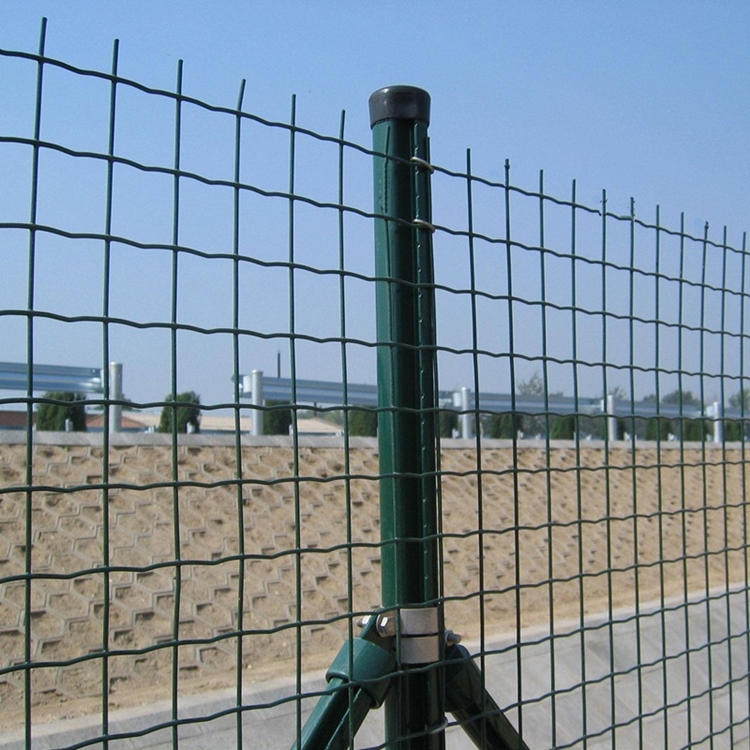Jul . 27, 2024 18:26 Back to list
Top Exporters of Aluminum Expanded Metal Mesh and Their Quality Products in Global Markets
Aluminum Expanded Metal Mesh Exporters A Key Player in Global Trade
Aluminum expanded metal mesh has become an essential product in various industries, including construction, architecture, automotive, and agriculture. Its unique properties—such as lightweight, strength, durability, and versatility—make it a popular choice for numerous applications. With the rise in demand for this innovative material, aluminum expanded metal mesh exporters play a crucial role in the global market.
Understanding Aluminum Expanded Metal Mesh
Aluminum expanded metal mesh is created by slicing a flat sheet of aluminum and expanding it to create a mesh-like structure. This process not only increases the surface area of the material but also enhances its strength while reducing weight. Typically, the mesh features diamond-shaped apertures, which allow for air circulation and drainage, making it ideal for applications in environments that require ventilation.
One of the major advantages of aluminum expanded metal mesh is its corrosion resistance. Unlike steel or iron, aluminum does not rust, which makes it an excellent choice for outdoor applications or areas exposed to moisture. Additionally, it is non-combustible and offers good thermal insulation properties. As a result, it is often utilized in facades, ceilings, and security systems.
Global Market Demand
The demand for aluminum expanded metal mesh has seen a significant increase due to its application in various sectors
. The construction industry, particularly, has embraced its use for architectural facades and interior partitioning. The automotive sector has also integrated it in lightweight vehicle parts to improve fuel efficiency without compromising safety.Moreover, with the rise of sustainable building practices, aluminum expanded metal mesh is gaining popularity as a recyclable and eco-friendly material. Many architects and designers are keen on utilizing this product in their projects to adhere to green building standards, further fueling its demand.
Role of Exporters
aluminum expanded metal mesh exporters

As the global demand for aluminum expanded metal mesh grows, exporters have become pivotal in ensuring that these products reach diverse markets. Successful exporters not only manufacture high-quality materials but also understand the complexities of international trade, including regulations, standards, and labeling requirements.
Exporters play a vital role in establishing connections between manufacturers and customers across the globe. They conduct thorough market research to identify emerging markets and consumer preferences, adapting their offerings accordingly. This flexibility often determines their success in capturing market share.
Moreover, effective communication and logistics are essential for exporters. They must ensure that the products are delivered promptly and safely, meeting the expectations of their clients. This includes managing shipping, customs clearance, and adhering to international quality standards.
Challenges Faced by Exporters
While the prospects for aluminum expanded metal mesh exporters are bright, they also face several challenges. Global trade policies, fluctuating tariffs, and geopolitical tensions can impact their business operations. Additionally, competition from local producers can be fierce, especially in regions where aluminum production is abundant.
To overcome these challenges, exporters must invest in innovation and quality assurance. Offering customized solutions and maintaining strong relationships with clients can give them a competitive edge. Building trust through reliable service and consistent quality is key to sustaining their business in the long term.
Conclusion
Aluminum expanded metal mesh exporters are an integral part of the global supply chain, contributing to various industries through their innovative products. As demand continues to rise, they must navigate challenges while capitalizing on opportunities to further establish their presence in international markets. With a focus on quality, sustainability, and customer satisfaction, these exporters are well-positioned to thrive in the evolving landscape of global trade.
-
Hop Dipped Galvanized / PVC Coated Temporary Fence-Anping County Xingzhi Metal Wiremesh Products Co.,Ltd|Durable Temporary Fencing&Versatile Installation
NewsAug.05,2025
-
Hop Dipped Galvanized / PVC Coated Temporary Fence - Anping County Xingzhi Metal Wiremesh Products Co., Ltd|Durable Construction&Versatile Applications
NewsAug.05,2025
-
Hop Dipped Galvanized / PVC Coated Temporary Fence - Anping County Xingzhi Metal Wiremesh Products Co., Ltd
NewsAug.05,2025
-
Hop Dipped Galvanized/PVC Coated Temporary Fence-Anping County Xingzhi Metal Wiremesh Products Co.,Ltd|Durable, Modular, Corrosion Resistant
NewsAug.05,2025
-
Hop Dipped Galvanized / PVC Coated Temporary Fence-Anping County Xingzhi Metal Wiremesh Products Co., Ltd|Durable Surface Treatments&Versatile Applications
NewsAug.05,2025
-
Steel Expanded Metal Mesh Fence: Secure & Durable Perimeter Solution
NewsAug.05,2025



